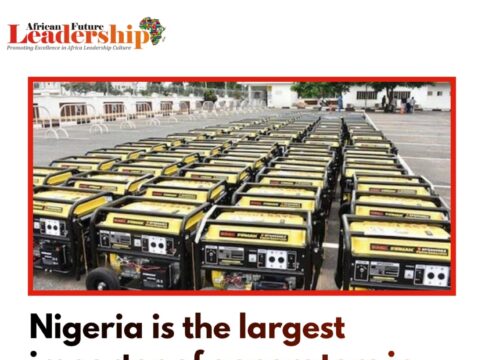According to a report by the International Renewable Energy Agency (IRENA), Nigeria is the largest importer of premium engines (PMS) and diesel generators in Africa.
A report titled “Roadmap for Renewable Energy: Nigeria”, developed by IRENA in collaboration with the Energy Commission of Nigeria (ECN), showed that electricity generation in Nigeria is dominated by 86% of natural gas-fired power plants and 14% of large hydroelectric power plants.
However, the report found that the efficiency of these power plants was severely affected by gas shortages, engine failures, and seasonal water cuts that affected power supplies.
The report also notes that this power shortage has led many households and businesses to generate their own electricity with diesel and gasoline generators as backups, with up to 84% of urban households using backup power systems such as diesel/gasoline generators.
READ MORE: 2023 elections: Everyone has abandoned me – Deji Adeyanju cries out
The report also showed that 86 per cent of the companies in Nigeria own or share a generator.
The report said in part: “Nigeria’s erratic power supply systems and the relatively expensive captive generation negatively impact the economy from the residential to the industry sector.
“Because of the high cost of own production, households and small businesses spend two to three times more on kerosene, diesel and gasoline than on grid electricity. In the industry, government data shows that Nigerian products are about a third more expensive than imported ones due to the cost of electricity generated in-house.”
According to the report, Nigeria’s electricity sector will require much more investment to ensure a stable supply.
“In terms of expanding access to electricity, by 2030 an investment of about $34.5 billion will be required to bring electricity to every home. The Nigerian Transmission Corporation (TCN) intends to refurbish and expand its network over the next 10 years,” it added.
IRENA, therefore, emphasized the need for Nigeria to move towards renewable energy sources in place of domestic fossil fuels.
“The low penetration of variable renewables, such as wind and solar, is indicative of significant reductions in technology costs in recent years and opportunities for integration into Nigeria’s energy sector, especially given its natural solar resources,” it added.




